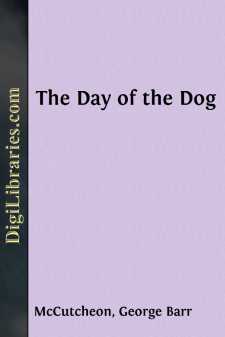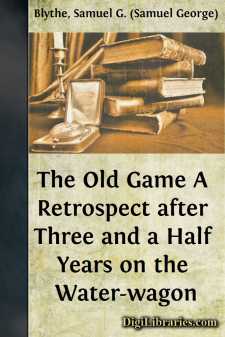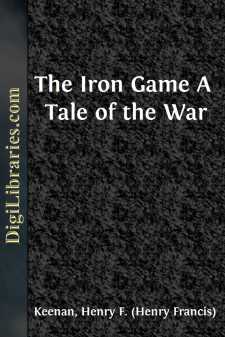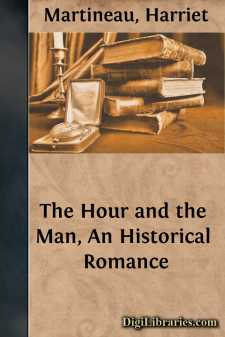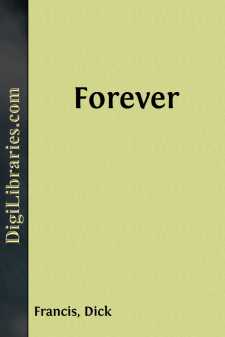Categories
- Antiques & Collectibles 13
- Architecture 36
- Art 48
- Bibles 22
- Biography & Autobiography 813
- Body, Mind & Spirit 142
- Business & Economics 28
- Children's Books 17
- Children's Fiction 14
- Computers 4
- Cooking 94
- Crafts & Hobbies 4
- Drama 346
- Education 46
- Family & Relationships 57
- Fiction 11829
- Games 19
- Gardening 17
- Health & Fitness 34
- History 1377
- House & Home 1
- Humor 147
- Juvenile Fiction 1873
- Juvenile Nonfiction 202
- Language Arts & Disciplines 88
- Law 16
- Literary Collections 686
- Literary Criticism 179
- Mathematics 13
- Medical 41
- Music 40
- Nature 179
- Non-Classifiable 1768
- Performing Arts 7
- Periodicals 1453
- Philosophy 64
- Photography 2
- Poetry 896
- Political Science 203
- Psychology 42
- Reference 154
- Religion 513
- Science 126
- Self-Help 84
- Social Science 81
- Sports & Recreation 34
- Study Aids 3
- Technology & Engineering 59
- Transportation 23
- Travel 463
- True Crime 29
Sort by:
by:
Charles Dickens
CHAPTER 1. Sun and Shadow Thirty years ago, Marseilles lay burning in the sun, one day. A blazing sun upon a fierce August day was no greater rarity in southern France then, than at any other time, before or since. Everything in Marseilles, and about Marseilles, had stared at the fervid sky, and been stared at in return, until a staring habit had become universal there. Strangers were stared out of...
more...
by:
Stephen Hawes
Some do endyte / vpon good moralyte Of chyualrous actes / done in antyquyte Whose fables and storyes ben pastymes pleasaunt To lordes and ladyes / as is theyr lykynge Dyuers to moralyte / ben oft attendaunt And many delyte to rede of louynge Youth loueth aduenture / pleasure and lykynge Aege foloweth polycy / sadnesse and prudence Thus they do dyffre / eche in experyence I lytell or nought / experte in...
more...
THE DAY OF THE DOG PART I "I'll catch the first train back this evening, Graves. Wouldn't go down there if it were not absolutely necessary; but I have just heard that Mrs. Delancy is to leave for New York to-night, and if I don't see her to-day there will be a pack of troublesome complications. Tell Mrs. Graves she can count me in on the box party to-night." "We'll need...
more...
I: Introductory In a few minutes it will be three years and a half since I have taken a drink. In six years, six months, and a few minutes it will be ten years. Then I shall begin to feel I have some standing among the chaps who have quit. Three years and a half seems quite a period of abstinence to me, but I am constantly running across men who have been on the wagon for five and ten and twelve and...
more...
by:
Various
OUR BOOKING-OFFICE.King Cracker the Millionth, of the Bonbon Dynasty.The Baron's Assistants say that of the Christmas works published by Messrs. HUTCHINSON & CO. they can and do recommend The Children of Wilton Chase by L.J. MEAD, to which they accord their mead of praise, which likewise they bestow on FLORENCE MARRYAT's The Little Marine and the Japanese Lily, a book of adventures in the...
more...
by:
Various
ENGLISH AND AMERICAN REPRINTS OF OLD BOOKS Most people are aware of the great demand there is for English literature, and indeed for all literature in the United States: for some years the anxiety of persons in that part of the world to obtain copies of our early printed books, prose, poetry, and plays, has been well known to such as collect and sell them on this side of the water. Where American...
more...
by:
Various
IMPROVED DYNAMO MACHINE. The continuous current and the alternating current generators invented by Dr. J. Hopkinson and Dr. Alexander Muirhead are peculiarly interesting as being probably the first in which the bobbins of the armature were wound with copper ribbon and arranged on a disk armature much in the same way as was afterward done by Sir William Thomson and by Mr. Ferranti. In the...
more...
CHAPTER I. THE BOY IN BLUE. When expulsion from college, in his junior years, was visited upon Jack Sprague, he straightway became the hero of Acredale. And, though the grave faculty had felt constrained to vindicate college authority, it was well known that they sympathized with the infraction of decorum that obliged them to put this mark of disgrace upon one of the most promising of their students....
more...
Waiting Supper. The nights of August are in Saint Domingo the hottest of the year. The winds then cease to befriend the panting inhabitants; and while the thermometer stands at 90 degrees, there is no steady breeze, as during the preceding months of summer. Light puffs of wind now and then fan the brow of the negro, and relieve for an instant the oppression of the European settler; but they are gone as...
more...
by:
Dick Francis
With so much at stake, Charles Dennison should not have been careless. An inventor cannot afford carelessness, particularly when his invention is extremely valuable and obviously patentable. There are too many grasping hands ready to seize what belongs to someone else, too many men who feast upon the creativity of the innocent. A touch of paranoia would have served Dennison well; but he was lacking in...
more...




